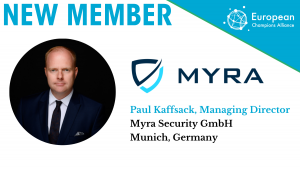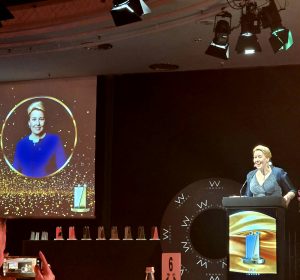I had the pleasure to interview Lamin Ben Hamdane Head of Start-Up Cooperation & Partnerships at Infineon and a member of the European Champions Alliance, we discussed the issues of European tech in 2021. I recommend you sincerely to read his interesting perspective.
Emma Neige – Strategic Partnerships and Communication at the ECA
What is your vision for European tech in 2021?
I really hope that we can leave the pandemic behind and will be able to meet on some occasions face to face again. Building up trust is essential to start new projects, whenever you make new connections and start important projects and investments. At the same time, it will be good to keep the new mindset that a lot can be handled via virtual meetings. For initial conversations with startups, this is way more efficient!
How does Europe stand out in the domain of startups?
Europe has a very diverse startup ecosystem in terms of geography and innovation fields. The same is true for corporates and hidden champions / SMEs. If incumbents open up a little bit to collaborate with startups and other external innovators, there could be a huge push for innovation and competitiveness in Europe. After all, startup cooperations, if done right, should accelerate innovation of the incumbent and help the startup mature at the same time!
Summing up, Europe stands out with its rich ecosystem, world-class research & universities, and deep tech startups.
With the fastly growing digitization in 2020 due to the confinement policies, do you think European companies are jumping on the occasion?
One of the positive side effects of this pandemic has been that it pushed digitalization and of course also revealed the gaps (public, e.g. homeschooling and in business). I really hope that this has been a wake-up call for many governments & companies to invest even more in digitalization. It has been a wake-up call for participants to do something now rather than later. In many areas of digitalization, startups can contribute with their solutions!
Who are, according to you, the main actors in European tech? Is there a collaboration between them?
Start-ups, corporates, and universities; and then especially in Europe you have the governments and European Union who play a role in financing and investing.
On the one hand, universities and R&D institutions can connect better with the business world, creating more entrepreneurial links with business. A lot has improved and we see more and more interesting deep tech spin-offs emerging from these institutions.
On the other hand, incumbents can collaborate with startups to accelerate internal innovation and create opportunities for young, high-growth tech companies! The ECA is a very good initiative to connect promising startups to corporates on a European level.
Do your predictions lean towards an acceleration of this collaboration?
The mindset of corporates changes: the innovation environment is very dynamic, increasingly you have to combine different disciplines and tech areas to create innovative products & services. That’s why it is more difficult to develop innovations completely in-house. There is a need to think more in ecosystems and identify partners that can help to bring innovations to the market faster.
At Infineon for example, we continuously improve the way we work with startups and partners, in general, to create more value for our existing customers faster and address new emerging markets and applications.
What are, according to you, the domains that will thrive and stand out in the near future?
Smart manufacturing, we have a huge manufacturing base in Europe that is, in some areas, ripe for an upgrade. Health Tech, there is an increasing need to make healthcare more efficient, fueled by demographic change. Cybersecurity is important as well when digitalization increases. Smart energy solutions will be needed to reach ambitious CO2-targets. I think that we live in exciting times with plenty of opportunities for innovation!




